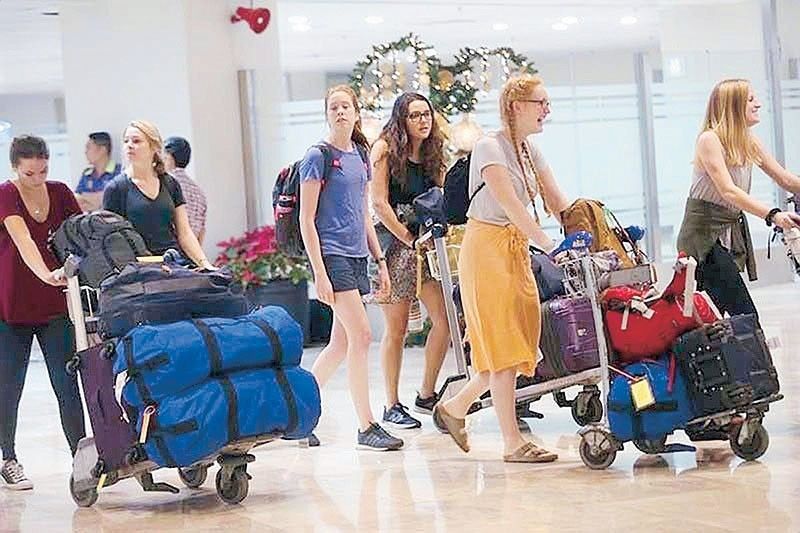Less tourists seen to visit Philippines this year

MANILA, Philippines — BMI Country Risk & Industry Research slashed its projection for tourist arrivals in the Philippines this year to 6.6 million from the 8.21 million forecast it gave in January.
BMI’s revised forecast for this year is also 14.2 percent lower than the baseline target of 7.7 million visitors set by the Department of Tourism (DOT).
However, despite the slight downgrade in forecast, BMI said international arrivals could still grow by 19.1 percent in 2024 from last year’s 5.54 million. This will also be 81 percent of the 8.26 million arrivals recorded in 2019, right before COVID-19 hit.
“We have a positive outlook for Philippines’ tourist arrivals in 2024 and over the remainder of our medium-term forecast period to 2028,” it said. “We expect arrivals growth to be driven by key source markets in Asia-Pacific, North America and Europe.”
The unit of Fitch Solutions added that tourism in the Philippines would continue to see a strong rebound over the medium term after travel was halted for many years due to the pandemic.
As such, BMI said tourist arrivals could increase further to 8.3 million in 2025 and 9.4 million in 2028, reflecting an annual growth rate of 14 percent year on year over their 2024 to 2028 forecast period.
However, the research firm flagged short-term risks for the country’s tourism sector stemming from high cost of living in many markets globally and tighter credit conditions, which will drag down consumer spending, especially on non-essential categories such as travel.
Based on the latest data from the DOT, 2.01 million international visitors entered the country from January to April.
About 1.9 million of these were foreign tourists while the remaining 116,446 were overseas Filipinos.
The country’s top five source markets over the first quarter were South Korea with 546,726, US with 315,816, Mainland China with 130,574, Japan with 123,204 and Australia with 88,048.
Also among the leading sources of tourist arrivals to the Philippines were Canada, Taiwan, the United Kingdom, Singapore and Germany.
- Latest
- Trending





























